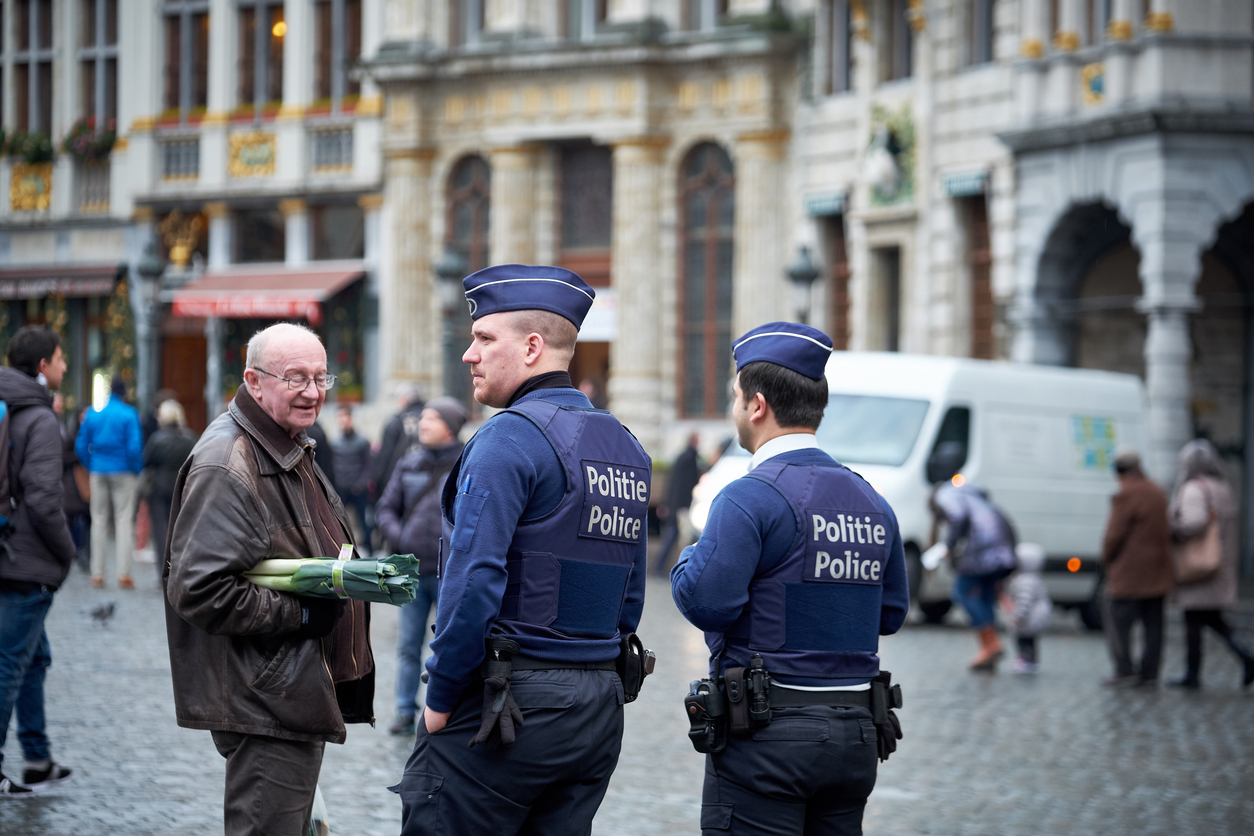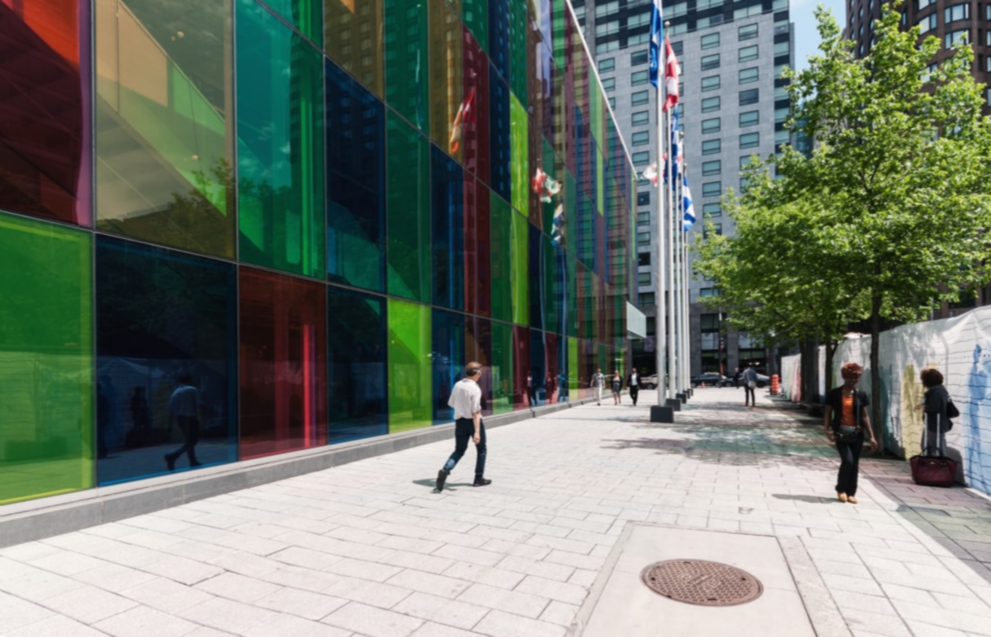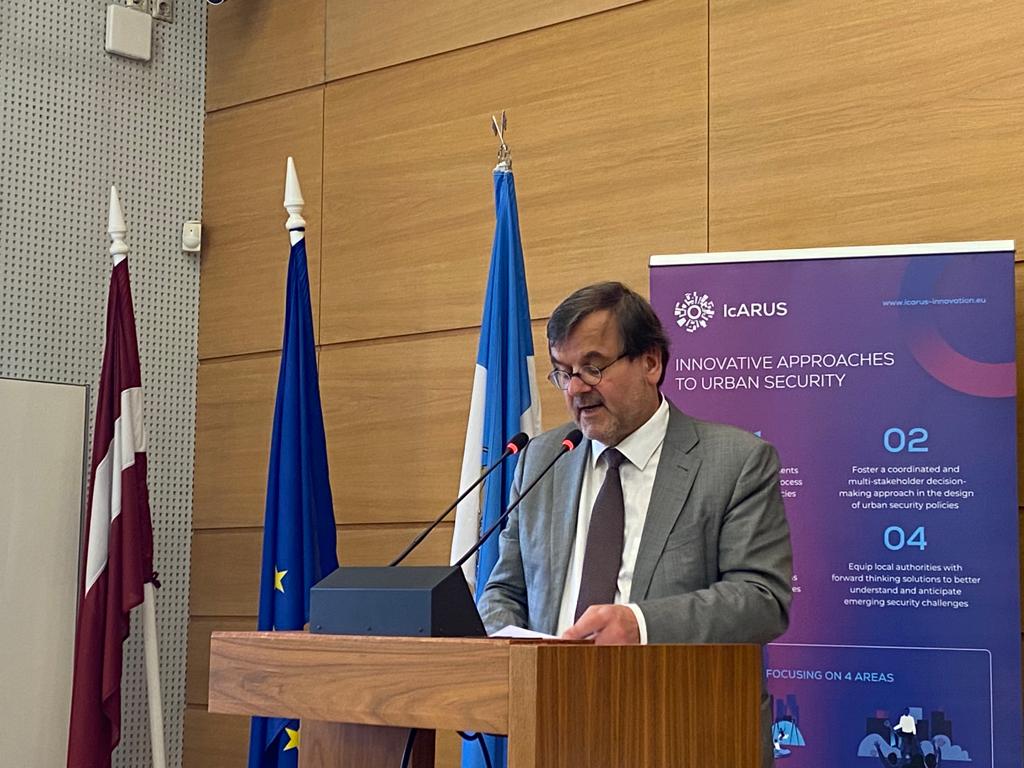February 2025 – Citizens need to trust their police to feel secure in their city. On the other hand, the police need to be trusted by citizens to work efficiently and serenely.
This view is widely shared among Efus member local and regional authorities, whatever their economic, social, geographic or other specificities. This is why Efus has been working on the issue of police and police-population relations ever since it was founded, in 1987. Today, it does so through a series of projects and initiatives.
The social role of local police
In its Security, Democracy and Cities manifesto (2025), Efus notes that local police are increasingly called to intervene in response to citizens’ demand for more police presence in the streets. This leads local police to “take on a social role and be on the front line in dealing with the symptoms and consequences of social, economic and international or geopolitical trends, whether mental health, drug addiction, anti-social behaviour, gender violence, organised crime, or drug trafficking, to name a few.”
Local authorities acting as intermediaries
Efus adds that “European local and regional authorities, which are directly responsible for local policing, can play a key role in ensuring peaceful, healthy relations between law enforcement and citizens, but also in ensuring that local police are adequately trained and supported.”
Improving relations between police and the population
Efus puts forward a series of practical recommendations for local and regional authorities with the aim of:
- generalising and improving the community policing approach within both national and local police forces in Europe so as to be closer to citizens and better listen to their needs and expectations
- providing more training for local police
- promoting diversity among police staff to match the composition of the population
- improving staff recruitment and retention
- encouraging the exchange of inspiring practices among local police forces at the national and European level.

Some 50 local police officers from 14 European cities took part in a police academy organised in Madrid (Spain) through the PACTESUR 2 project, in November 2024.
A new network of European local police forces
Efus launched in 2024 a specialised network dedicated to the exchange of practices and experience among European local police forces, titled EU-POLNET. Gathering (as of February 2025) 24 local police forces from 13 European countries, the network works on six areas:
- protection of public spaces
- police-population relations and community policing
- diversity within local police forces
- recruitment, training and retention of police officers
- coordination with other local services involved in the security chain
- role of local police in preventing crime and risky behaviours.
The idea of such a specialised network had first been proposed by the city of Nice (France), which is vice president of Efus, during the 2021 Security, Democracy and Cities conference (hosted by Nice).
Strengthening links between police and citizens
Efus is a partner in two EU-funded projects that seek to improve urban security by reducing the gap between police and citizens and making the former more efficient.
The first one, KOBAN, is led by the Dutch police and seeks to promote the community policing approach among European law enforcement agencies. As such, it looks to create or strengthen trust among citizens, notably hard to reach communities. KOBAN seeks to tackle “the growing challenge of building relations of trust with communities both on- and offline.”
Efus will contribute to defining and preparing six pilot projects with the local police forces of Brussels-Capital Ixelles (Belgium), Lisbon (Portugal), Radom (Poland), Savonlinna (Finland), Utrecht (Netherlands) and Valencia (Spain), which are all partners in the project. It will follow more specifically the Brussels pilot.
Furthermore, Efus will contribute to the project’s recommendations for implementing sustainable and efficient community policing practices in Europe.
Public space protection and police
Another project in which Efus is a partner is PACTESUR 2, which is led by the city of Nice and is focused on public space protection. This project, which gathers 15 European local authorities*, explores how to strengthen and improve the role of police (both national and local) in protecting public spaces through exchanges among European peers and with the private sector.
PACTESUR 2 organises “police academies” with officers from various European local police forces and field visits during large events such as the Les Ardentes festival in Liège (July), the Nice Carnival (February) and the Madrid gay pride (MADO, July).
PACTESUR 2 follows up on PACTESUR (2019-2022), a project in which Efus was a partner and which also explored the role of police in public space protection.
* Bologna (Italy); Bratislava (Slovakia); Brussels (Belgium) (represented by safe.brussels, the public body in charge of crime prevention for the Brussels-Capital Region); Budapest-7th district (Hungary); Gdansk (Poland); Kordelio-Evosmos (Greece); Liège (Belgium); Lisbon (Portugal); Madrid (Spain); Nice (France); Riga (Latvia); Tallinn (Estonia); Turin (Italy); Vilnius (Lithuania), and Xàbia (Spain)
More on:
> Efus’ activities on the issue of police
> The recommendations of the 2025 Security, Democracy and Cities manifesto on police (page 2)
> Report of the 2024 Security, Democracy and Cities conference on ‘local police and cities’
> EU-POLNET
> KOBAN
> PACTESUR 2
Further reading:
Police-population relations: challenges, local practices and recommendations (Efus 2016)





